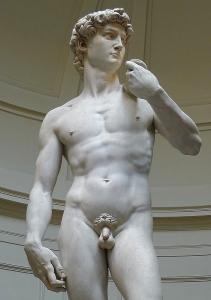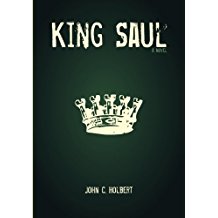 Joab did not care what his king told him as he left the city to chase after the rebel Absalom. Of course he knew how the aging monarch doted on his son, that handsome, long-haired wonder, who had stolen the hearts of the people of Israel right under the unaware nose of David. How could he have been so blind? David, who had prided himself on his full knowledge of everything that went on in his growing kingdom, had in this case been completely taken unawares. Right in front of the palace itself, day after day, the preening Absalom cornered the passersby, asking them what they wanted from the king. Each one had replied to the prince that he wanted justice—land returned, cattle restored, wife brought back from the clutches of a rival. And to each one Absalom had said, “Well, your cause sounds right to me, and if I were in charge, you would have what you want. But since my father, that grey-haired monarch, who used to be able to bring justice to his people, remains on the throne, I fear my hands are tied. David is so busy, you know, and possibly not quite as sharp as once he was, and is surely too busy to deal with your just cause. I am so sorry for that! But you can be certain that I will never forget your problem, and when the day comes when I can do something on your behalf, well, you can count on me!”
Joab did not care what his king told him as he left the city to chase after the rebel Absalom. Of course he knew how the aging monarch doted on his son, that handsome, long-haired wonder, who had stolen the hearts of the people of Israel right under the unaware nose of David. How could he have been so blind? David, who had prided himself on his full knowledge of everything that went on in his growing kingdom, had in this case been completely taken unawares. Right in front of the palace itself, day after day, the preening Absalom cornered the passersby, asking them what they wanted from the king. Each one had replied to the prince that he wanted justice—land returned, cattle restored, wife brought back from the clutches of a rival. And to each one Absalom had said, “Well, your cause sounds right to me, and if I were in charge, you would have what you want. But since my father, that grey-haired monarch, who used to be able to bring justice to his people, remains on the throne, I fear my hands are tied. David is so busy, you know, and possibly not quite as sharp as once he was, and is surely too busy to deal with your just cause. I am so sorry for that! But you can be certain that I will never forget your problem, and when the day comes when I can do something on your behalf, well, you can count on me!”
It hardly took a god-like pharaoh to see what would become of all that! Soon, the people flocked to Absalom as some sort of savior. When the traitor begged his father to allow him to make a so-called pilgrimage to Hebron, his birthplace, and the site of David’s first supporters for the kingship, David idly and without thought allowed him to go. As a result, Absalom stirred up a first class rebellion there, marched on Jerusalem with a sizable army, forced his father to abdicate and run for his life into the wilderness. But the foolish boy made a fatal mistake when he took the advise of David’s planted spy, Hushai, instead of the wise counsel of Ahitophel, David’s former friend. Ahitophel told the stubborn and unwise youth that he had best strike David now while he was running away with little organized support, because if he allowed the wily king to gather his still considerable followers, he would become like a cornered animal, dangerous and wild. Better to attack him now!
But Hushai convinced Absalom that David would be now like that cornered beast and would be difficult to defeat. He counseled that the new king wait until he could gather a larger army that would then easily crush his father and consolidate his control over the land. When Ahitophel recognized that Absalom had taken the advice of his rival counselor, he saddled his donkey, rushed home, and hanged himself. He knew that Absalom’s fate was sealed.
And it was. David was given a reprieve of time in the wilderness to amass a formidable army, and when Absalom finally, but too late, tried to meet his father’s forces in the field, he suffered a complete and humiliating defeat. Joab and his force dealt with the far less well prepared and far less able troops of Absalom quite easily, and scattered them to the four corners of the field. Absalom, realizing that the day was lost, along with his hopes for a kingship over Israel, rushed madly from the battle site. Unfortunately, and deeply ironically, his pride and joy, his richly luxuriant hair, was his undoing. Forcing his donkey to head for the trees at the edge of the field of battle, he rode hard between two of the trees and found himself stuck fast between two adjacent branches. As a result, he dangled between earth and sky, his mount leaving him hanging from his hair, helpless, screaming for aid.
One of Joab’s soldiers ran to tell his general that Absalom was caught by the hair, hanging absurdly from some branches, trapped by his hair. “Well, man,” cried Joab, “Why did you not kill the fool? I would have rewarded you richly for such an action.” “Not likely,” replied the panting soldier. “We all heard what the king said about Absalom. David said clearly, ‘Deal kindly for my sake with the boy Absalom.’ Do you imagine what the king would do to me if I dispatched his son? I know all too well many stories of the king murdering messengers who bring news of dead royal figures. No thanks, Joab!”
With a guttural grunt, Joab demanded to be shown where Absalom could be found. He grabbed several darts from his belt and followed the soldier to the spot between the trees. When they got there, Joab stopped for a moment to assess the perilous position that the arrogant prince now found himself in. He could not help but laugh at the would-be usurper, hanging by his hair, about a cubit off the ground. “Not so grand now, are we?” mocked Joab. “You would be a king better than your father, the mighty and invincible David? You hardly look much like a king now, fool!” And with those words, Joab rushed at the hanging youth and filled his body with the three darts he carried, now thrust deep into Absalom’s chest. Not to be left out, several of Joab’s soldiers joined in the mutilation with their leader, making sure that the traitor was dead. They cut through that disgusting hair, grabbed the limp corpse, and threw it randomly into the trees and covered the body with a large heap of stones.
But someone had to tell the king of the brutal death of his son. No one volunteered for this duty, for all had heard what the king had commanded the troops about the life of Absalom. Joab surely wanted no part of the telling, since he was the actual killer of the traitor. He appointed a Cushite, a Philistine follower of David, to bring the news to the king. As the messenger approached, David appeared to have no interest in the outcome of the battle; he wanted only news of his son. And the messenger replied, albeit rather indirectly, saying that he hoped all enemies of the king would follow the mortal way of that ungrateful son. And David was overcome with grief, crying and wailing, “O Absalom, my son! Would that I had died instead of you! O, Absalom, Absalom!”
Joab witnessed the distress of his king, his uncontrollable wailing and weeping, and he despised David as a weakling and a coward. The wretched boy was nothing but a traitor who was bent on deposing his father and murdering him if he had the chance. What else is to be done with traitors? Death is their lot, the more brutal the better. And Joab watched David and began to wonder if the king’s day had come to an end, if it might not be time for a new king. Why not Adonijah, he thought? He would do well as king, and Joab rode toward Adonijah’s house, the old king’s cries ringing in his ears. (For fuller account ion this wonderful tale, read my novel, pictured below.)











